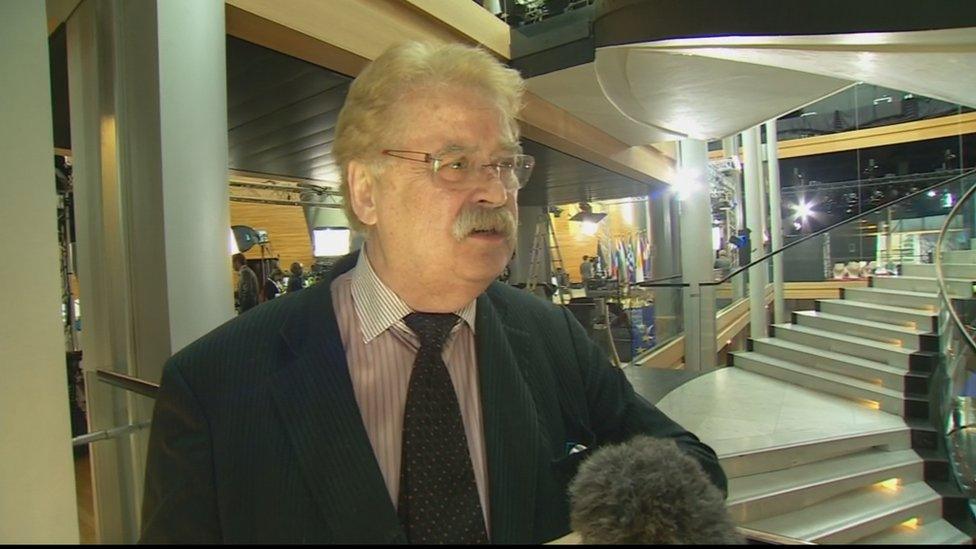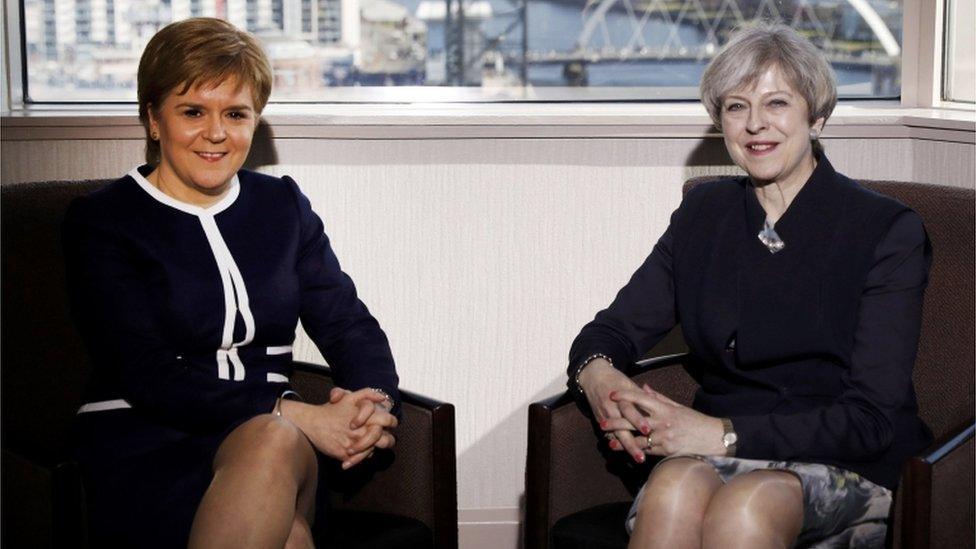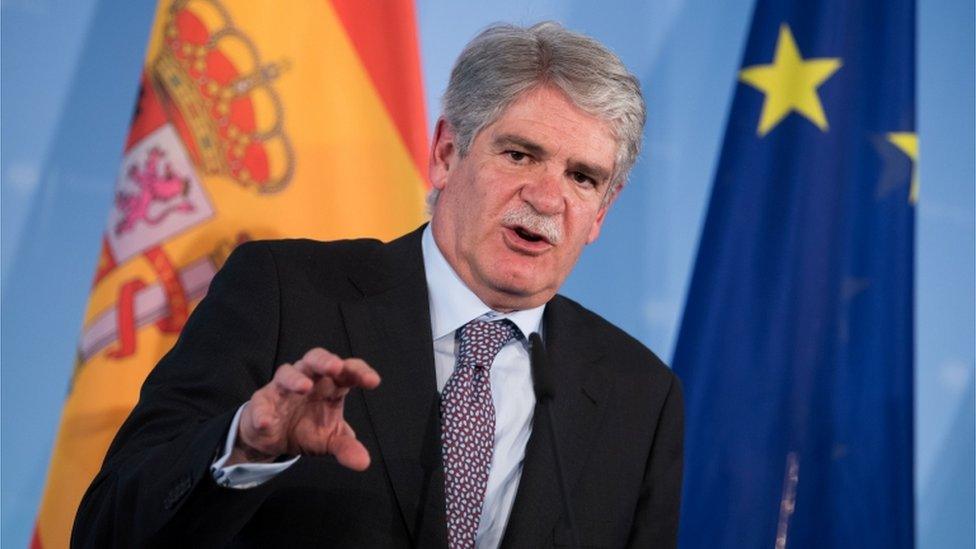German MEP Elmar Brok says Scotland rejoining EU 'could be speedy'
- Published

Mr Brok is the former chairman of the European Parliament's foreign affairs committee
The process of an independent Scotland rejoining the European Union could be "relatively speedy", a senior German MEP has said.
Elmar Brok said there would be few technical obstacles to overcome if the political will was there to allow it to happen.
Mr Brok also suggested Europe's opposition to independence had softened as a result of the Brexit vote.
But he said much would depend on the attitude of countries such as Spain.
Mr Brok is the former chairman of the European Parliament's foreign affairs committee, and a member of Angela Merkel's CDU party.
'Positive relationship'
Speaking in the House of Commons last month, Prime Minister Theresa May insisted Scotland would be leaving the EU regardless of whether or not it was independent.
She added: "What we need now is to unite, to come together as a country and to ensure that we can get the best deal for the whole of the United Kingdom."
But Mr Brok said that "Scotland has our sympathy" after the country voted by 62% to 38% for the UK to remain part of the EU in last year's referendum, despite the UK as a whole voting to leave.
He told BBC Scotland: "If there is a possibility that the United Kingdom breaks - which we do not hope - then I think we should have a positive relationship with Scotland to find solutions.
"We would like to have Britain as a whole in the European Union. If parts would come, I would be the last one who would be against it."

Theresa May has already rejected Nicola Sturgeon's call for another legally-binding referendum on independence to be held
Mr Brok stressed that any independence referendum would need to be approved by London - something that Mrs May has already ruled out, repeatedly arguing that "now is not the time" for another vote on the issue.
Instead, she has pledged to get the best possible deal for the UK as a whole, and has called on the Scottish government to focus on that rather than another independence referendum.
Her Scottish secretary, David Mundell, has said that Mrs May's "now" could include "the Brexit process, the journey of leaving and people being able to understand what the UK's new relationship with the EU is, so they can make an informed choice if there was ever to be another referendum".
That has led to speculation that First Minister Nicola Sturgeon may consider holding a "consultative" referendum - similar to one held in Catalonia after the Spanish government refused to grant permission for one.
But Mr Brok said: "If this is not approved by London then we have problems with other countries, because it would be an example for Catalonia, for example."

Analysis by Nick Eardley, BBC Scotland political correspondent
Last week the Spanish foreign minister said his country had no intention of blocking Scotland joining. This week a senior German MEP says that process could be swift.
His thinking is that because Scotland already complies with EU rules, it wouldn't have to change much. He says it's possible there could be political stumbling blocks - but the technical problems would be minimal.
Music to SNP ears? Probably. But there's a snag, the Conservatives believe. Ian Duncan, who is the party's Scottish MEP, says the EU would want a lot from Scotland - they wouldn't offer the same terms as the UK enjoys just now, Scotland would have to submit to terms that might not please Scotland's voters.
All things that might have to be weighed up in the future.

When asked whether an independent Scotland would face obstacles in a bid for EU membership, Mr Brok replied: "I do not know what Spain does".
But he pointed out that all of the EU's laws have been fully implemented and already applied in Scotland, adding: "So a lot of things which we have to negotiate with the candidate countries we have not to negotiate with Scotland because Scotland has already done it.
"If the political agreement would be there, then the process would be relatively speedy."
He also said there was no "queue" to join the EU, with each candidate country being judged on its own merits.
Mr Brok said: "Scotland is a member of the European union and fulfils all of the conditions. There will be not many technical problems."
He agreed that Brexit meant there was now more sympathy for the idea of Scottish independence among the other 27 EU member states than there had been ahead of the 2014 referendum.
The MEP continued: "In 2014 it was a situation before Brexit and we do not want to harm the United Kingdom - that might have been a consideration in Spain."

Spanish foreign minister Alfonso Dastis confirmed at the weekend that his country would not veto Scotland's entry to the EU - but said he was still opposed to independence
Speaking at the weekend, Spain's foreign minister Alfonso Dastis confirmed his government would not veto any attempt from Scotland to join the EU after Brexit.
But he stressed that he remained opposed to independence.
Mr Dastis added: "Having said that, if, in application of its laws, the outcome of that process is a division of the United Kingdom, any part of the United Kingdom that becomes a state and wants to join the EU will have to apply. And follow the steps that are stipulated."
Scottish Conservative MEP Ian Duncan warned that the EU's other members states would seek to divide the UK, which he said "must be united", during the Brexit process.
He added: "The Spanish are trying to play politics in a different way. They are trying to use the division, as they would see it, within the UK to try and leverage something out of Gibraltar.
"The issue was never really that Spain would veto - it is what Spain would ask of Scotland in order to avoid the veto."
Mr Duncan said he agreed it could be "very, very easy" for Scotland to join the EU after independence - but only if the country was prepared to "give up everything you would want to keep".
And he suggested there was little chance of of Scotland being allowed to opt-out of the Common Fisheries Policy, or of keeping the UK's rebate or opt-outs over currency and the Schengen Area.